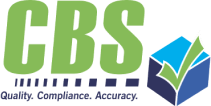Is Someone You Know Struggling With Substance Abuse? Here Are Some Tips On How To Help
With the occasion of International Overdose Awareness Day, people close to us with substance abuse issues are in our thoughts. America’s ongoing addiction crisis is a problem that is close to the hearts of the Team at Coding & Billing Solutions. In fact, our annual Golf Classic is dedicated to helping children who have been impacted by addiction.
Do you have an adult family member or friend struggling with drug or alcohol abuse? You’re likely wondering how to help. The following are some questions to ask and some tips on how to help.
Am I Overreacting to a Substance Use Problem?
If you’re noticing issues in your loved one’s work, health, relationships, finances, or social life, you’re not overreacting. Continuing to use substances despite these problems is a clear sign that substance use has become a significant issue. When someone is unwilling to discuss their behavior or consider that there might be a problem, it’s a strong indicator that a problem exists.
What You Can Do:
- Educate Yourself: Learn about the signs and symptoms of substance use.
- Observe Behavior: Monitor the person’s actions over days or weeks to gather information. This can be helpful if you decide to talk to other family members, seek professional advice, or address the person directly.
- Share Concerns: Discuss your observations with other family members and friends to gauge their perspective. If they agree, decide who will talk to the person about seeking help.
- Seek Professional Advice: Contact a substance use professional, mental health professional, or other trusted experts to describe the situation and get their assessment.
- Ensure Safety: If there’s any risk of physical or emotional harm, develop a safety plan.
The Benefits of Taking Action Early
The idea that someone must “hit bottom” before they can be helped is a myth. Research shows that early identification of substance use problems is far more effective. Catching the issue early—before significant damage occurs—leads to better outcomes. Early intervention might involve a health screening or a conversation with a professional. Treatment is often less intense and disruptive when the problem is addressed early.
Don’t wait for a crisis to take action. Without intervention, you may face severe consequences like arrests, medical emergencies, job loss, and even death. Moreover, untreated substance use can lead to additional problems for family members, such as health issues, depression, anxiety, and even substance use problems in children.
How to Raise the Subject
You might worry that bringing up the issue will lead to drastic reactions. However, the conversation could be productive. The person might not realize the extent of their problem or its impact on others. Without change, the situation could worsen, leading to the very outcomes you fear.
Tips for a Successful Conversation:
- Choose the Right Time: Don’t bring up the subject when either of you is under the influence of substances.
- Plan Ahead: Find a time when you can talk privately and without interruptions. Aim for a dialogue where both of you can express your thoughts.
- Express Concern: Start by showing that you care for the person and are concerned for their well-being.
- Be Specific: List the behaviors that worry you and explain how they’ve impacted you and others.
- Encourage Dialogue: Ask open-ended questions and listen to their perspective without judgment.
- Follow Up: If the person denies there’s a problem, suggest revisiting the conversation later. Your goal is to express your concerns, not to force an immediate change.
What If They Can’t Cut Back?
If the person has only recently developed a problem, they might be able to cut back on their own. However, many people who try to reduce their use find that they can’t sustain it for long. This realization may help them understand that the problem is more serious than they thought. If the person is willing to consider that there’s a problem, suggest getting an evaluation from a professional.
How to Help a Friend Understand They Need Help
If you’ve tried expressing your concerns repeatedly without seeing any change, focus on delivering a consistent, positive message: “We care about you and want you to get help.” Avoid blaming or arguing, as these can lead to denial and defensiveness.
Consider involving other trusted individuals—such as a friend, doctor, or clergy member—who might be able to reach the person in ways you haven’t been able to.
DOs and DON’Ts
- Don’t try to talk when either of you is under the influence.
- Do protect yourself and others from physical harm.
- Do call the police if there is violence.
- Do set and stick to limits that protect your home, finances, and relationships.
If you’re at your wits’ end, a formal intervention might be necessary.
How to Help a Loved One Get the Care They Need
When people think of treatment for substance use, they often imagine long-term residential facilities or detox. However, treatment options vary widely and are tailored to the individual’s needs. Treatment addresses physical, psychological, emotional, and social aspects of the person’s life.
Treatment Steps:
- Screening: This involves questions about substance use and its impact. It can be done by various professionals, including doctors and counselors.
- Brief Intervention: If a problem is identified, the person may receive feedback and be asked to cut back or stop their use. If they’re willing to make changes, a health professional can help set goals and offer support.
- Ongoing Support: If necessary, the person may be referred for more intensive treatment. Any number of programs can be effective if the person is willing to engage.
To find a treatment program, visit SAMHSA’s Behavioral Health Treatment Services Locator.
What to Do in an Emergency
If your loved one shows any of the following symptoms, call 911 or emergency services immediately:
- Loss of consciousness after taking drugs or alcohol.
- Seizures.
- Suicidal thoughts after drinking or drug use.
- Severe withdrawal symptoms, such as confusion or tremors.
Getting help for someone struggling with substance use is never easy, but taking action is crucial for their well-being and the well-being of those around them.

